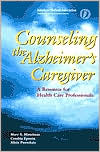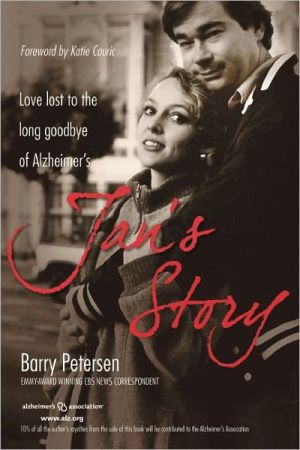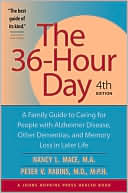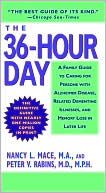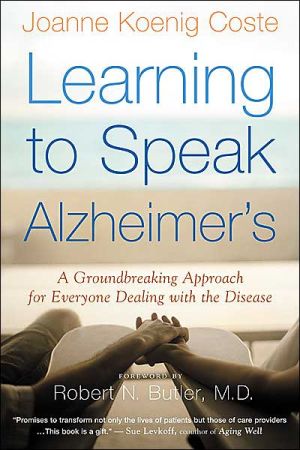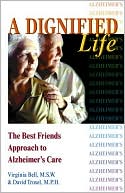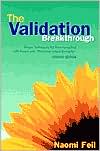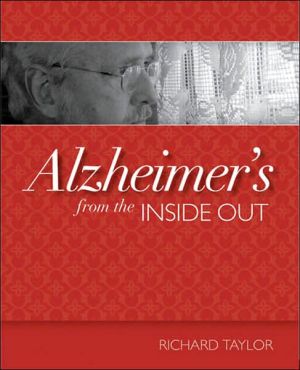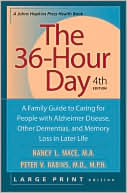Counseling the Alzheimer's Caregiver: A Resource for Health Care Professionals
Provides proven strategies to help caregivers deal with Alzheimer's Disease and draws on lessons learned during 15 years of empirical clinical treatment intervention. This manual is an invaluable resource for health care providers who work with families caring for an Alzheimer's Disease (AD) patient. Providing proven strategies to help caregivers deal with the enormous physical and emotional stress of caring for a loved one with AD, it can help significantly improve the level of patient care....
Search in google:
Specific strategies are presented here for health care professionals helping caregivers meet the daily and long-term challenges of caring for someone with Alzheimer's disease (AD). The manual covers the spectrum of AD issues from diagnosis to the end of life and tells how health care professionals can coach caregivers, with techniques illustrated with vignettes and an ongoing case study. Material is based on a major study of a psychosocial intervention for family caregivers at the New York University School of Medicine's Alzheimer's Disease Center. The book can be used in physicians' offices, social service agencies, hospitals, and other health care settings to create a counseling program to support caregivers. Annotation c. Book News, Inc., Portland, OR Doody Review Services Reviewer:David O. Staats, MD(University of Oklahoma Health Sciences Center)Description:This book describes a counseling program developed by NYU for caregivers of a loved one who has Alzheimer's disease.Purpose:Its purpose is to provide a summary of the evidence-based counseling strategies that work best with persons caring for a loved one with Alzheimer's disease. The book gives a description of the counselilng process.Audience:Social workers will find this most of use. Others who counsel family members caring for someone with Alzheimer's disease will find this bok useful. Healthcare professionals caring for the demented also will find this book of use.Features:Woven throughout the discussion are vignettes that clearly get across the message of what is at issue with the counseling. At the end of each of the 13 chapters there is a summary of the points covered.Assessment:More healthcare professionals should know the best ways of counseling family members caring dor a demented person. It would have been helpful to have the citation of the original research and to publish some of the caregiver assessment measures. Not all dementing illnesses are Alzheimer's disease, and some word about any special approaches or features in other dementing illnesses would be of use. This book does not discuss how one arranges for the counseling described -- access is a pertinent issue here. With the burgeoning population of the demented, and the desire of caregivers to manage them at home, this book is a good contribution to the field.
Introduction Chapter 1: Alzheimer s Disease: Essential Background Information Understanding Alzheimer s Disease Diagnosing Alzheimer s Disease The Stages of Alzheimer s Disease The Effects of Caregiving on Families Chapter 2: Assessment Components of the Assessment Clinical Impressions Sample Assessment Summary Chapter 3: Counseling the Caregiver Conditions of the Counseling Arrangement The Counseling Process Counseling Techniques and Strategies Chapter 4: Family Counseling Preparing for Family Involvement The Family Counseling Process Understanding the Family Chapter 5: Ad Hoc Counseling The Benefits of Ad Hoc Counseling Introducing Ad Hoc Counseling Services to the Caregiver The Ad Hoc Counseling Process What the Counselor Can Learn From Ad Hoc Calls Suggestions for Implementing Ad Hoc Counseling Chapter 6: Support Groups for the Caregiver Benefits of the Support Group Process Who Should Be Referred to a Support Group? What Should a Counselor Consider About a Support Group When Making a Referral? How to Prepare a Caregiver for a Support Group Chapter 7: Helping Caregivers Adapt to Change Adapting to the Caregiving Role How Counseling Can Help Caregivers Emotional Reactions Over the Course of the Illness Lifestyle Changes Financial Issues Chapter 8: Relationship-Related Issues Meaning of Loss of the Relationship With the Patient Spouse Caregivers Adult Child Caregivers Other Caregivers Chapter 9: Managing Behavioral and Psychological Symptoms of Alzheimer s Disease Understanding and Responding to Symptoms of Alzheimer s Disease Creating an AD-Friendly Environment Changing Lifestyles The Most Common Difficult Behaviors Associated With Alzheimer s Disease Chapter 10: Medical Care for the Person With AD Routine Health Care for the AD Patient Medical Emergencies Hospitalization of the AD Patient Chapter 11: Formal Services for the Patient at Home The Decision to Care for the Patient at Home Choosing Living Arrangements Formal Services for In-Home Care Chapter 12: Residential Care The Decision to Place a Relative With AD in a Residential Facility Choosing a Residential Facility for a Person With AD The Placement Process The Caregiver s Role After Placement Chapter 13: The End Stage of Alzheimer s Disease, Death, and Bereavement The End Stage of AD The Caregiver s Role at the End Stage of AD Addressing Medical Care Issues Death of the Patient Autopsy Appendix A: The Caregiver Assessment Battery Appendix B: Resources Bibliography .
\ From The CriticsReviewer: David O. Staats, MD(University of Oklahoma Health Sciences Center)\ Description: This book describes a counseling program developed by NYU for caregivers of a loved one who has Alzheimer's disease.\ Purpose: Its purpose is to provide a summary of the evidence-based counseling strategies that work best with persons caring for a loved one with Alzheimer's disease. The book gives a description of the counselilng process.\ Audience: Social workers will find this most of use. Others who counsel family members caring for someone with Alzheimer's disease will find this bok useful. Healthcare professionals caring for the demented also will find this book of use.\ Features: Woven throughout the discussion are vignettes that clearly get across the message of what is at issue with the counseling. At the end of each of the 13 chapters there is a summary of the points covered.\ Assessment: More healthcare professionals should know the best ways of counseling family members caring dor a demented person. It would have been helpful to have the citation of the original research and to publish some of the caregiver assessment measures. Not all dementing illnesses are Alzheimer's disease, and some word about any special approaches or features in other dementing illnesses would be of use. This book does not discuss how one arranges for the counseling described — access is a pertinent issue here. With the burgeoning population of the demented, and the desire of caregivers to manage them at home, this book is a good contribution to the field.\ \ \ 3 Stars from Doody\ \
